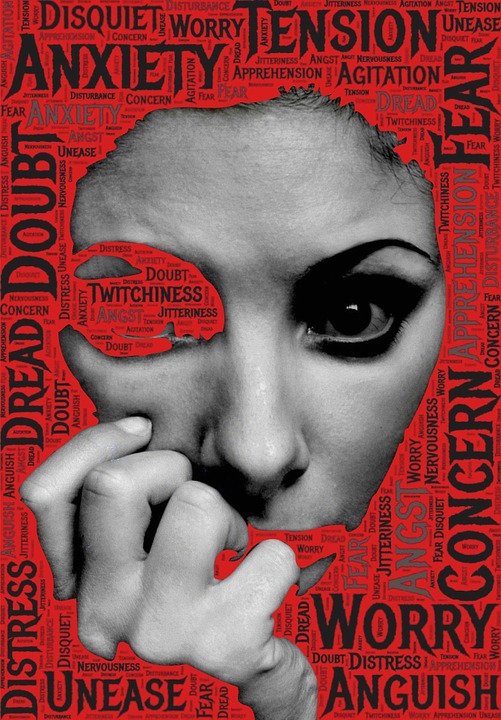Borderline Personality Disorder Quiz: Do You Have It?

Our Borderline Personality Disorder (BPD) quiz may she some light on to whether you or someone you care about suffers from this condition. BPD is an enduring mental health condition that affects people’s every day lives.
The main characteristic of Borderline Personality Disorder is an underlying fear of real or imagined abandonment. Due to this fear, people with BPD tend to have mood swings and can act impulsively when they feel emotionally vulnerable.
Those with Borderline Personality Disorder have an uncertain sense of self. They can react to interpersonal stress with extreme anger, bouts of depression, and severe anxiety. This makes it difficult, not only for the person with BPD, but for those who care about him or her.
Borderline Personality Disorder normally begins to appear in adolescence. Though a person can’t be formally diagnosed with BPD until they reach adulthood, traits will typically start to appear during a person’s teenage years.

Research shows that approximately 5.9% of the general population suffer from Borderline Personality Disorder – 5.6% of men and 6.2% of women.
Not too long ago, mental health professionals were at a loss to effectively treat Borderline Personality Disorder. Standard cognitive behavioral therapy (CBT) did not prove effective for individuals afflicted with BPD. Today, there are evidenced-based therapies that give those with this condition much to hope for.
Borderline Personality Disorder Quiz
Take our Borderline Personality Disorder quiz, which is based on the Diagnostic and Statistical Manual of Mental Disorders, Fifth Edition (DSM-V), the manual used by mental health professionals to diagnose behavioral health conditions. If, after taking the the quiz, you think you may have this disorder, there is more information below about getting a diagnosis and treatment, as well as some additional resources.
This quiz is intended to be used for informational purposes only. If you believe that you or someone you care about has Borderline Personality Disorder, please seek an evaluation by a mental health professional.
Answer “Yes” or “No” to the following questions:
- I rapidly enter into intimate relationships (physical and/or emotional).
- I quickly cut off communication with someone to avoid them abandoning me.
- I have a history of intense, unstable relationships with others.
- In relationships, I swing between extremes of closeness and love to disdain or anger.
- I feel unsure of who I truly am.
- I act impulsively and recklessly (e.g., going on spending sprees, having unsafe sex, abusing substances, binge eating, etc.)
- I intentionally harm myself physically by cutting or in other ways.
- I have recurrent thoughts of suicide or use threats of suicide when upset.
- I have extreme mood swings (not related to a mood disorder, like bipolar).
- I feel empty most of the time.
- I become intensely angry, which others point out is out-of-proportion to the situation.
- I struggle to trust others, oftentimes questioning their motives.
- When I get distressed, I feel as though I am watching myself from the outside or as though my life is surreal.
Answering “yes” to 5 or more of these questions suggests you have some traits of Borderline Personality Disorder. Consider contacting a mental health professional for a full evaluation.
Assessment and Diagnosis
There are psychological tests that can determine whether or not a person has Borderline Personality Disorder; but usually, formal psychological testing is not necessary to diagnose the condition. A mental health practitioner who has experience working with BPD can diagnose based on gathering information about your history and current symptoms.

Treatment
Because Borderline Personality Disorder is an enduring and pervasive condition, research has found that traditional treatment methods aren’t very effective in managing the symptoms. A psychiatrist may prescribe medication if there is a co-existing mental health disorder like depression or bipolar. The treatment of preference is a form of cognitive behavioral therapy (CBT) known as Dialectical Behavioral Therapy, or DBT.
Most therapists should be familiar with the techniques of DBT; however, if you are diagnosed with Borderline Personality Disorder, it’s advisable to seek a practitioner who has gone through formalized training. Dialectic is a philosophical term that means two opposing ideas can be true.
DBT was developed by a researcher and practitioner, Marsha Linehan; and the good news is it has been shown effective in treating Borderline Personality Disorder. DBT teaches coping skills and consists of three elements: mindfulness, distress tolerance, and emotional regulation. It helps to quell the intense mood swings and emotions that accompany Borderline Personality Disorder.

While Borderline Personality Disorder is a pervasive condition that affects all aspects of a person’s life, there is no reason to despair if you suspect you suffer from it. Today there are effective therapies that help people with BPD learn to modulate their moods, alleviate relationship-related anxiety, and stay centered on the here and now.
Because many people with Borderline Personality Disorder deal with thoughts of suicide we are including, a resource that can help you. If you have these thoughts, please contact National Suicide Prevention Lifeline at 800-273-8255. They are open 24-hours.
Here are more in-depth resources if you would like additional information about Borderline Personality Disorder.
TheMentalHealthBlog.com is a participant in the Amazon Services LLC Associates Program, an affiliate advertising program. TheMentalHealthBlog.com earns fees from products sold through qualifying purchases by linking to Amazon.com. Amazon offers a commission on products sold through their affiliate links.





This is obvious, but please go to a reputable psychologist and/or psychiatrist. If possible go by word of mouth, not who simply accepts your insurance. It is surprisingly common to be diagnosed with BPD without ruling out mood disorders. As an extremely wise practioner said…How does one know your personality when one’s moods are all over the place. This same practioner gives mood stabilizers (mostly Depakote, Lamictal, and Lithium) to her supposed BPD patients and it turns out the stubborn BPD symptoms abate or lessen significantly.
Thank you for your comment. It’s worth reiterating that one should find a reputable practitioner. Regarding your comment about misdiagnosis of borderline personality disorder, it is possible to have both borderline personality disorder and a mood disorder, which is why seeing an experienced practitioner is essential.
Highly energetic article, I loved that a lot. Will there be a part 2?
Thanks to my father who shared with me concerning this blog, this blog is genuinely awesome.